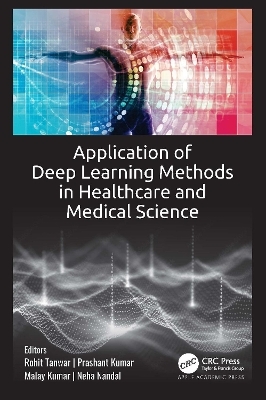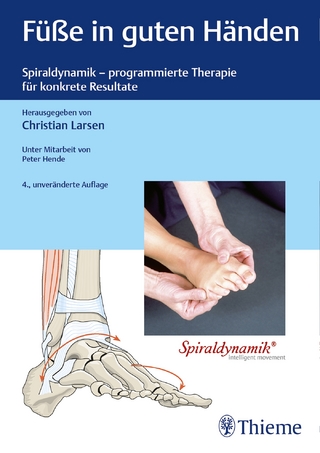
Application of Deep Learning Methods in Healthcare and Medical Science
Apple Academic Press Inc. (Verlag)
978-1-77491-120-4 (ISBN)
The volume provides a wealth of up-to-date information on developments and applications of deep learning in healthcare and medicine, providing deep insight and understanding of novel applications that address the tough questions of disease diagnosis, prevention, and immunization. The volume looks at applications of deep learning for major medical challenges such as cancer detection and identification, birth asphyxia among neonates, kidney abnormalities, white blood cell segmentation, diabetic retinopathy detection, and Covid-19 diagnosis, prevention, and immunization. The volume discusses applications of deep learning in detection, diagnosis, intensive examination and evaluation, genomic sequencing, convolutional neural networks for image recognition and processing, and more for health issues such as kidney problems, brain tumors, lung damage, and breast cancer. The authors look at ML for brain tumor segmentation, in lung CT scans, in digital X-ray devices, and for logistic and transport systems for effective delivery of healthcare.
Rohit Tanwar, PhD, is Associate Professor at the School of Computer Sciences, University of Petroleum and Energy Studies, Dehradun, India. He has more than 10 years of experience in teaching. His areas of interests include network security, optimization techniques, human computing, soft computing, cloud computing, data mining, etc. Dr. Tanwar has published one book and has several others in progress. He is associated with several international journals as guest editor and reviewer. He has more than 30 publications to his credit to date in reputed journals and conferences. Prashant Kumar, PhD, is Assistant Professor in the Department of Computer Science and Engineering at the Dr. BR Ambedkar National Institute of Technology, Jalandhar, India. Previously he has worked with the Department of Systemics in the School of Computer Science at the University of Petroleum and Energy Studies, Dehradun, India, and the Department of Computer Science and Engineering at the National Institute of Technology Hamirpur, India. He has published more than 25 research papers. Malay Kumar, PhD, is Assistant Professor in the Department of Computer Science and Engineering at the Indian Institute of Information Technology Dharwad, India. Earlier he was associated with the School of Computer Science of the University of Petroleum and Energy Studies, Dehradun, India. He has authored more than 20 research papers in international journals and conferences. He has served as chair and technical program committee member for international conferences and workshops and was a guest editor of several international journals. Neha Nandal, PhD, is Associate Professor in the Computer Science and Engineering Department of the Gokaraju Rangaraju Institute of Engineering and Technology, Hyderabad, India. She has published 19 articles in her research area in different journals and conferences. Dr. Nandal has participated in workshops; completed courses on Python, machine learning, and deep learning on Coursera; and also hosted several faculty development programs.
1. A Review on Detection of Kidney Disease Using Machine and Deep Learning Techniques 2. Deep Learning-Based Computer-Aided Diagnosis System 3. Extensive Study of WBC Segmentation Using Traditional and Deep Learning Methods 4. Introduction and Application of SVM in Brain Tumor Segmentation 5. Detection Analysis of COVID-19 Infection Using the Merits of Lungs CT Scan Images with Pre-Trained VGG-16 and 3-Layer CNN Models 6. Deep Learning Methods for Diabetic Retinopathy Detection 7. Study to Distinguish Covid-19 from Normal Cases Using Chest X-Ray Images with Convolution Neural Network 8. Breast Cancer Classification Using CNN Extracted Features: A Comprehensive Review 9. Multimodal Image Fusion with Segmentation for Detection of Brain Tumors Using a Deep Learning Algorithm 10. Unrolling the COVID-19 Diagnostic Systems Driven by Deep Learning 11. Generative Model and Its Application in Brain Tumor Segmentation 12. Genomic Sequence Similarity of SARS-CoV2 Nucleotide Sequences Using Biopython: Key for Finding Cure and Vaccines 13. Autonomous Logistic Transportation System for Smart Healthcare System 14. Survey on Cancer Diagnosis from Different Tests and Detection Methods with Machine and Deep Learning 15. A Deep Learning-Based Portable Digital X-Ray Devices for COVID-19 Patients 16. Adoption of Machine Learning and Open Source: Healthcare 4.0 Use Cases
| Erscheinungsdatum | 12.08.2022 |
|---|---|
| Zusatzinfo | 55 Tables, black and white; 70 Line drawings, black and white; 43 Halftones, black and white; 113 Illustrations, black and white |
| Verlagsort | Oakville |
| Sprache | englisch |
| Maße | 152 x 229 mm |
| Gewicht | 566 g |
| Themenwelt | Schulbuch / Wörterbuch |
| Medizin / Pharmazie ► Physiotherapie / Ergotherapie ► Orthopädie | |
| Naturwissenschaften ► Biologie | |
| Technik ► Medizintechnik | |
| Technik ► Umwelttechnik / Biotechnologie | |
| ISBN-10 | 1-77491-120-5 / 1774911205 |
| ISBN-13 | 978-1-77491-120-4 / 9781774911204 |
| Zustand | Neuware |
| Haben Sie eine Frage zum Produkt? |
aus dem Bereich


